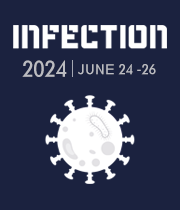Title : Molecular epidemiology of the SARS-CoV-2 omicron variant in Finland, November 2021 to June 2023: A molecular epidemiology study
Abstract:
Background: The omicron variant of SARS-CoV-2 has been proven as a diversified variant with lower risk for public health than the previous variants. Public health policy has been adjusted toward endemic COVID-19. Understanding the molecular evolution and epidemiological characteristics of omicron variant is vital to evaluate the current public health policy and project future epidemic.
Method: In this study, we collected sequencing data of omicron variant based on Finnish dataset to identify the dominant circulating lineages responsible for epidemic wave and high frequency mutations (HFM) driving the evolution of the omicron variant. We planned to combine sequencing data of omicron variant with surveillance data of daily number of COVID-19 cases to qualify the transmission dynamics of SARS-CoV-2 omicron variant. A multivariable regression model will be fitted to identify HFM significantly associated with transmissibility of the omicron variant.
Preliminary progress: A total of 22,828 SARS-CoV-2 omicron whole-genome sequences with high coverage from Finland (November 2021 to June 2023), were included in the analysis. During Nov.21-Jun.23, six clades of omicron variant were detected (BA.1, BA.2, BA.4, BA.5, BQ.1, XBB,). The BA.1 lineage of the SARS-CoV-2 omicron variant was first identified in Finland in November 2021, and had been spread rapidly around the country. The BA.2 lineage outcompeted BA.1 lineage and became predominant in 2 months from first identified in January 2022. The BA.5 (first identified in May 2022) lineage showed considerably steeper growth, becoming predominant lineage in around 1 month. The XBB lineage was first identified in October 2022 and took over the BQ.1 lineage in February 2023. The study is ongoing.
Significance: The research is expected to yield insights into the genetic and epidemiological characteristics of the omicron variant in transition from pandemic into potential endemic, project the future epidemiology of COVID-19, and inform public health policy.



